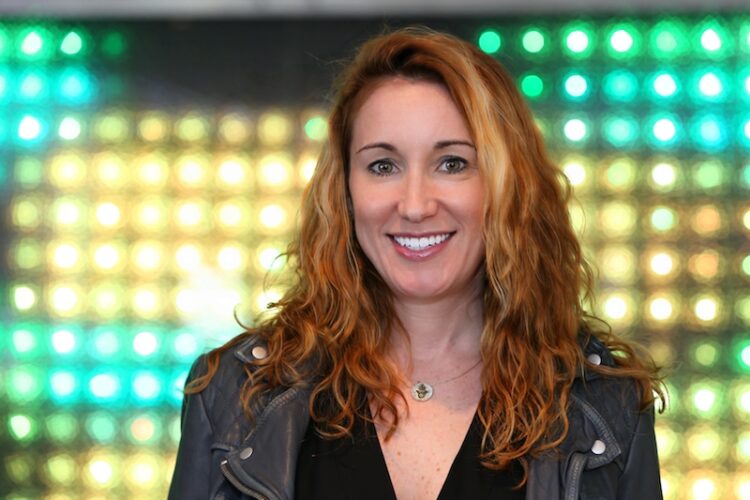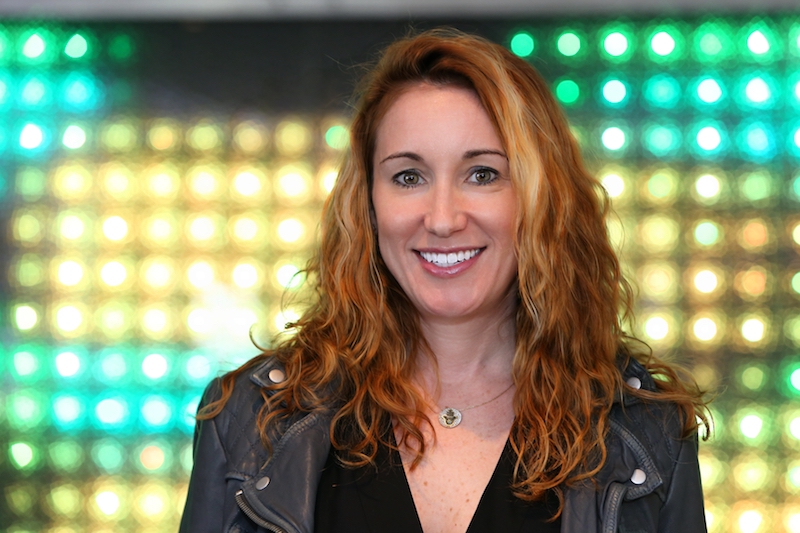Are you a woman in NYC Tech and interested in participating in this series? Make sure to read the whole article…
Much has been said and written about the lack of women in the tech sector, be it as investors (or associates), founders, or in management positions at major companies. Is the problem the old boys network – or that success in technology is seen as a young man’s game? In this series, we speak with some of the top women in tech in New York as they discuss the challenges they face, the perceptions that need to be changed and the work that’s being done – or not – to help to promote women in tech.
Today we hear from serial entrepreneur Ashley Swartz, who mostly recently founded Furious Corp, an enterprise software platform that optimizes revenue across all advertising formats. The company founded in 2014 and is backed by investors including Whitestone Investment Fund, Nielsen Innovate, Laconia Ventures, and Brian Cohen. The company was worked in traditional linear ad sales with MTV Ad Sales, Turner Ad Sales and DirecTV.
Ashley Swartz of Furious Corp.
What’s your background and how did you develop your career as a female entrepreneur in the NYC tech ecosystem?
My first career was in manufacturing finance where I leveraged enterprise software to implement financial control processes like forecasting, pricing, inventory management and built products and software throughout my career for large and small companies. I have been in media and advertising now for 14 years, and am respected as a thought leader on the future of television, video, and advertising technology (known as Red Fury).
Having worked for agencies (buyers) and media companies (sellers), as an economist, I realized that the problems that the media and advertising industry now face are not unlike those faced by other large industries that make ‘tangible’ goods. I simply looked ahead a few years ago and anticipated the current “ad-pocalypse” of today, caused by a flat market, the share-shifting of advertising dollars to less profitable formats (to digital from traditional media) and looked to other industries for technological solutions, applying them to media with my domain expertise.
I am a female founder, who has built software to help media companies thrive during times of fear, uncertainty and doubt. Our enterprise software platform, PROPHET, helps maximize revenue and profit across a media company’s portfolio of advertising products and automates highly manual workflows resulting from having to connect the many disparate ad tech systems that have emerged over the past 5 years (mostly VC-backed). It is not unlike what SAP, Oracle, and IBM have done for other industries; helped them optimize their supply chains.
What are the advantages of being a woman in tech?
The advantage is that I have no choice but to be fearless and ask for forgiveness and not permission.
What can be done to further promote female entrepreneurs and women in tech in New York?
I have learned on my journey that the primary challenge holding back female entrepreneurs is access to capital. We need platforms to highlight female founders, but most importantly, those investors that invest and support female founded companies need to be given more visibility and recognition for doing so. We will create more opportunity and more female founders if we create a system that rewards investors for supporting them and helping them succeed.
What is diversity to you and do you see it evolving in tech?
Diversity to me is in having people with varied experience and perspectives around a table to solve one problem. I don’t see the problem to be women in tech, I see the problem to be too few women in leadership and a lack of access to capital for women to lead, build, hire and nurture diverse teams.
Why do you think it’s important that women retain, grow, and develop into senior roles within their organizations?
It is important because we don’t want our daughters to have to go through the same slough we have. But as an inclusive capitalist, it is most important because at the end of the day, female leaders deliver better performance and greater ROI to shareholders. It really is that simple. And lastly, when they succeed, they will give back and invest in other women.
How do you see the future of teams and interactions in a diverse environment and what implications will this have?
The breakthrough will come when more people of both genders have a greater awareness of the unconscious gender bias that exists in both our language and our perceptions. This will unlock the real potential that diversity affords to create breakthroughs and provide fertile soil for innovation. I see teams that are more collaborative and refreshingly focused on goals and measurable outcomes rather than individual achievements; more true meritocracies and less hierarchical, even in small organizations.
How can women rise in the ecosystem and what are the unseen barriers?
Women will rise by never giving up and being willing to work harder, longer and be stronger than their male counterparts. And in regards to being founders, be lean operators that are capable of doing more with less, for longer because they have less access to capital. The unseen barriers are the unconscious biases that we have yet to tackle in a meaningful way; passionate men are great founders, and great investments. Passionate women are often perceived as ‘emotional’ and scary or volatile to many men, and a great example of why it is so hard for women to raise money.
Please tell us about a few organizations that you are involved with or respect that are promoting women in tech.
I volunteer as a judge with BUILD NYC, I mentor young women, and in particular try to help female military veteran founders. I speak on the topic of women in tech and women as early stage founders every chance I get, and participate in a variety of conferences and meetups. I am a big believer the best way I can give back is to be a badass founder and hire great women to build a great company and successful company.
What can men do to participate in this discussion?
Start by thinking about what opportunities they would want for their daughters, and how they would want their daughters to be treated and perceived by their peers. Then be honest about it and hold their peers accountable, and most importantly, act accordingly.
It really is THAT simple.
The team at AlleyWatch believes it’s important to have an inclusive discussion around the challenges facing women in tech along with highlighting the work of the female entrepreneurs that have made NYC one of the best places for women in tech according to some recent studies. That’s why we are running this series that showcases women in tech in New York.
If you are a female founder in NYC working in tech and interested in participating in the series please visit this link or click on the image above.
Please feel free to pass this on to any women in NYC that you feel should be considered for the series. Thank you.




